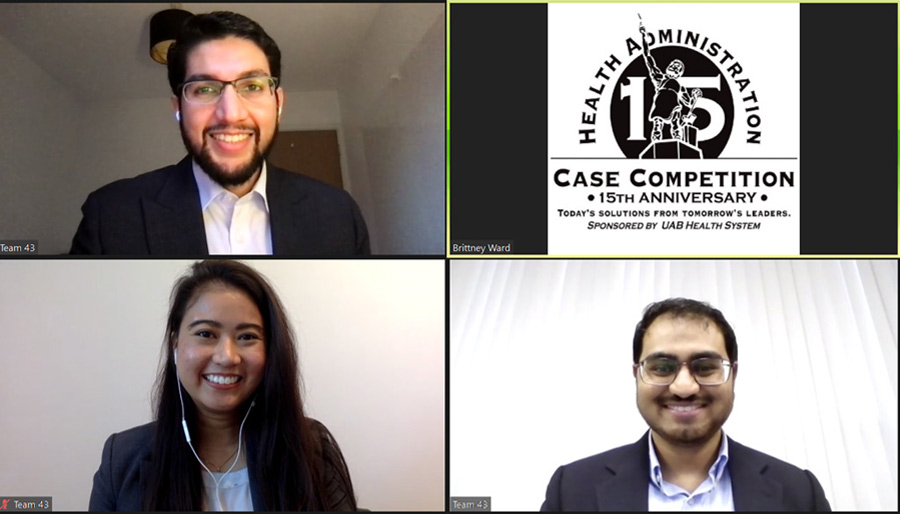
Every fall, graduate students in the UCF College of Community Innovation and Education’s health administration master’s degree program learn about case competitions. If they try out and are accepted, students get an opportunity to tackle recent real-world problems in healthcare and offer a potential solution in front of a panel of industry experts at case competitions offered throughout the year. The University of Alabama-Birmingham competition always occurs in February and was held virtually this year due to COVID-19.
“Students who audition and get selected for a case team work together with the shared purpose of proposing solutions to a complicated healthcare issue. This enriches their ability to complete meaningful research and exercises their critical thinking skills,” says Shannon Elswick, a senior coach who’s been working with the team for five years. Elswick is also an instructor and executive-in-residence in the Department of Health Management and Informatics.
The case competitions also give students a chance to relate to their course material in a different way. Armed with the skills they’re learning from classroom lessons, students can apply their newly gained knowledge to real-world situations they may face once they graduate.
Participants of the University of Alabama, Birmingham competition this year had to propose a post-pandemic plan for a large, multi-specialty pediatric practice in South Florida, explains Judah Soray, a student in the masters of health administration program. The pediatric practice was undergoing a transition period, so students had to devise a better organizational structure, explain how to expand the organization and reassign roles, and provide advice on the best telehealth application software to use.
Teams are given the prompt a few weeks in advance of the competition, leaving them enough time to collaborate and research their proposed solutions. On event day, weeks’ worth of research will be condensed to a quick 20-minute presentation.
The application of what I learn in a controlled, educational environment is a great complement to the coursework I’m experiencing in the program.
Sunil Mahajan
Kourtney Nieves, associate lecturer and the graduate academic program coordinator for the health services administration degree, has been the faculty leader of the team since 2016. “I wanted to assist the students with the competition, as it opens up so many opportunities for them as case team members to learn and grow, not only as students, but also as industry professionals,” says Nieves.
Soray participated in six networking sessions with industry professionals, and due to the small size of the sessions, he was able to have one-on-one time with the experts. The team also interacted with students from other universities and have been invited to Cornell University’s inaugural case competition at the end of March.
“The application of what I learn in a controlled, educational environment is a great complement to the coursework I’m experiencing in the program,” says Sunil Mahajan, a graduate student on the team. “Case competitions let you discuss, make mistakes and build something without the stakes of the real-world workplace. Professionally, it gives me the ability to simulate how I would act in certain situations.”
Graduate students who are interested in joining the case competitions team should look for audition announcements and details in late summer via their Knights email.